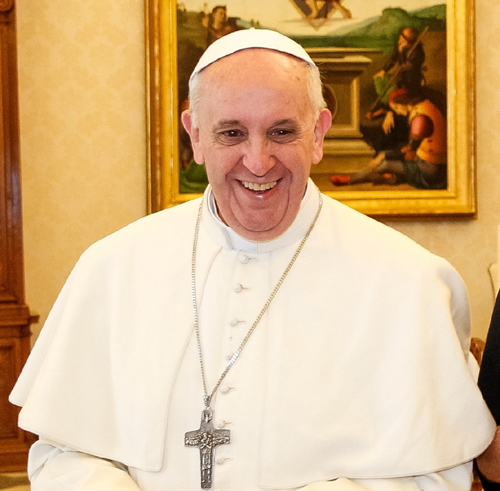
Pope Francis’ most recent musings on non-believers made the headlines earlier this week. On Tuesday the Italian newspaper La Repubblica published a letter from Francis, in which the Pontiff calls for atheists and agnostics to “follow their conscience”, and implied that those who do so can receive God’s forgiveness. The Pope’s letter came as an answer to La Repubblica’s co-founder and former editor Eugenio Scalfari’s earlier article, in which Scalfari, an agnostic, asked if "the Christian God forgives those who do not believe and do not seek faith."
In his lengthy response, Francis talks about the necessity of “open dialogue free of prejudices” between Christians and non-believers. The Pontiff’s 2,500 word letter has been hailed for its conciliatory tone and “fraternal spirit,” but, the most attention has been given to these remarks: "Given – and this is the fundamental thing – that God's mercy has no limits, if He is approached with a sincere and repentant heart," Francis writes, "the question for those who do not believe in God is to abide by their own conscience. There is sin, also for those who have no faith, in going against one's conscience. Listening to it and abiding by it means making up one's mind about what is good and evil.”
These words echo those the Pope expressed in a homily in May, in which he seemed to suggest that even the faithless can be redeemed through Christ, and that everyone should “just do good.” In this case, the Vatican was quick to issue a clarification on what the Pope actually meant, and underline that no atheist or agnostic should count on a ticket to eternal salvation. We have yet to hear from the Vatican spokespeople about Francis’ latest comments.
There’s been some discussion on whether or not the Pope’s remarks promise non-believers a place in heaven (why atheists would need this kind of reassurance in the first place is beyond me), but what is obvious is that Francis is continuing with his quest to freshen up the Catholic Church’s image. Next on his project list might just be the tradition of priestly celibacy: Archbishop Pietro Parolin, who the Pope recently appointed as the Secretary of State of the Vatican, suggested in an interview that celibacy is “not dogma, or a law of divine origin, and is therefore open to discussion.”

